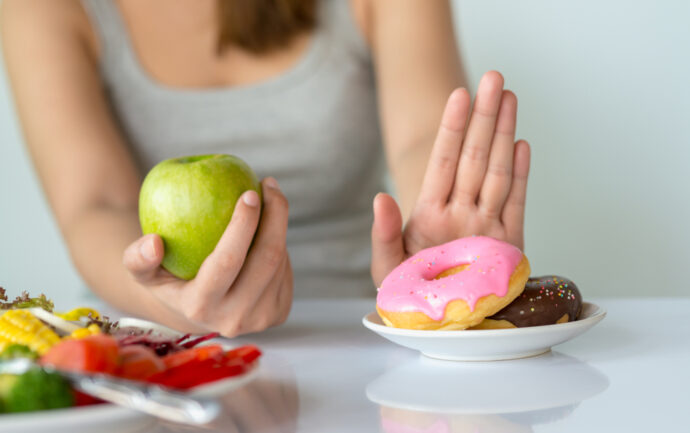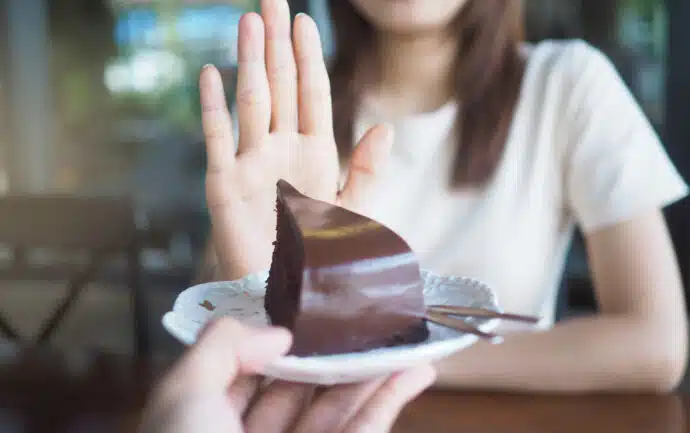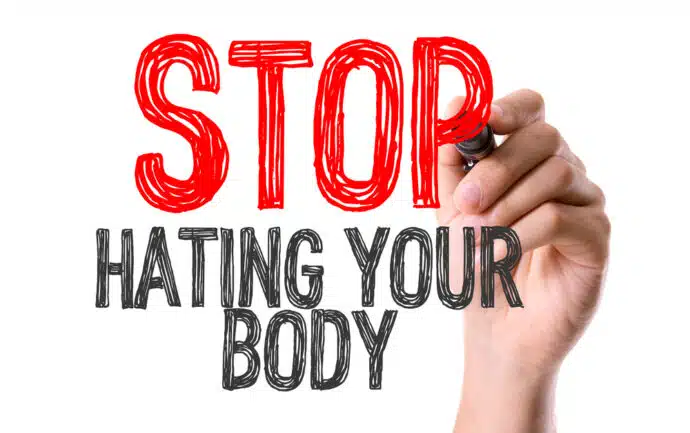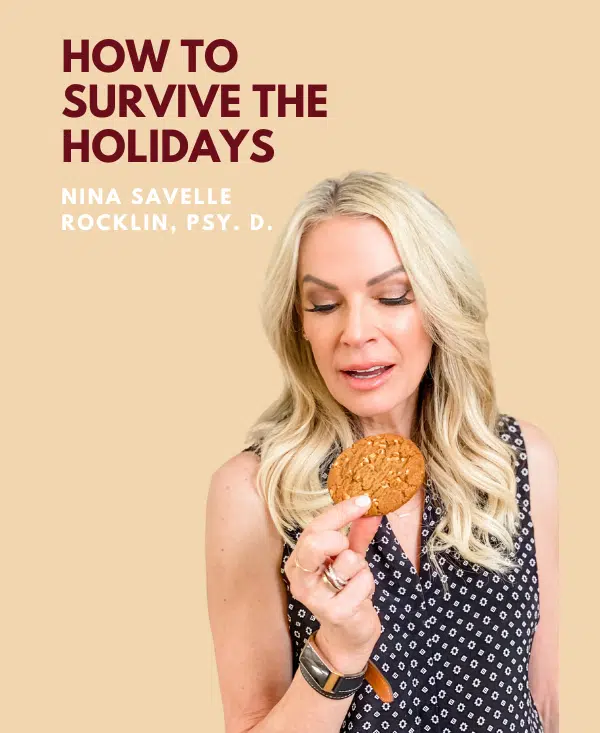Table of Contents
- Binge Eating: The Unseen Consequence of Overworking
- Too much of a good thing
- Brenda’s Story
- Ross’ Story
- Laura’s Story
- Frequently Asked Questions:
Binge Eating: The Unseen Consequence of Overworking
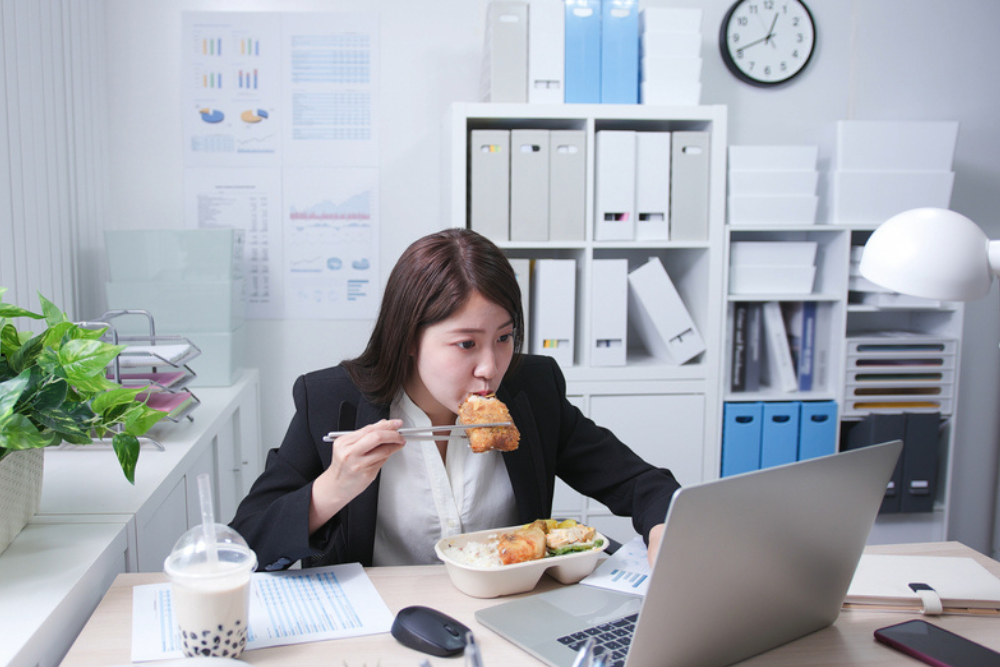
The Significance of Labor Day
We just celebrated Labor Day here in the United States, a holiday that recognizes and honors the hard work of American workers.
Labor Day also marks the unofficial end of summer, making it the perfect opportunity to relax and enjoy parties and barbecues. Labor Day is a day when we do anything but labor.
Working hard is part of our culture. Having a work ethic and being productive is highly valued. It’s associated with success, virtue, and personal fulfillment.
The Modern Dilemma of Productivity
Being busy is sometimes equated with being productive, successful, or important. Many people think that if you're not busy, you're not doing enough. While hard work and being busy are positive traits, if there is not enough balance, that can lead to burnout, stress, and coping strategies like binge eating.
Too much of a good thing
Productivity is a way of creating a sense of meaning in our lives. Many people enjoy being productive and find purpose in their accomplishments. Yet, constantly working or doing tasks can distract us from other concerns.
If we’re always focused on a to-do list, we have less capacity to process uncomfortable emotions. By staying busy, we avoid issues like relationship problems, unresolved trauma, or personal dissatisfaction.
We also might equate our self-worth with how much we are achieving. Being perpetually busy can become a way of validating our worth or avoiding feelings of inadequacy.
Being busy can give us a sense of control over our lives. When external circumstances feel chaotic or unpredictable, having a busy schedule and managing our time gives us a sense of order and structure.
If we don’t cultivate ways to have a work-life balance, food can provide a temporary escape, and it can also be a way of coping with deeper issues.
The following excerpt from The Binge Cure: 7 Steps to Outsmart Emotional Eating, illustrate the connection between busyness and binge eating.
Brenda’s Story
Brenda perched on the couch, an open notebook on her lap, a pen poised over the page, and held my gaze. She looked like a schoolgirl ready to take notes.
“I need some tools to deal with my compulsive overeating,” she said. “I don’t want to talk about my family or about the past. I just want you to tell me what to do.”
Brenda spent each evening volunteering for a non-profit organization, the TV blaring in the background, and a crochet project in her lap. As long as she was multitasking, she was fine. Without those distractions, she turned to food.
“So,” she asked, pen at the ready. “What do I need to do?”
I said, “You need to do less.”
Brenda blinked in confusion. “Do less? What is that supposed to mean?”
I explained that her relentless pursuit of accomplishment was likely a distraction from uncomfortable thoughts and emotions.
When she could “be” with herself, she would no longer need to do so much—or to eat when she was stressed.
Brenda considered just “being” with herself a waste of time. She had no concept of what it might be like to value herself because of who she is, instead of by her accomplishments. Like Brenda, many of us define ourselves by what we do, and we miss out on the richness of simply being.
The author and self-development coach Dr. Wayne Dyer once said, “I am a human being, not a human doing. Don’t equate your self-worth with how well you do things in life. You aren’t what you do. If you are what you do, then when you don’t . . . you aren’t.”
Deepak Chopra makes a similar point in a television advertisement for Microsoft, asserting, “I am a PC and a human being. Not a human doing. Not a human thinking. A human being.”
Wayne Dyer and Deepak Chopra are in the minority. Our society often values productivity and accomplishment above everything else. If you grow up in a family (and/or a culture) that is primarily or solely interested in what you’re achieving, you learn to value yourself by being productive; it becomes the basis of your self-esteem.
When other people express interest solely in your accomplishments, you learn to value yourself only for what you have achieved and you may devalue yourself when you are not actively achieving or when you experience failure.
When they dismiss or devalue your feelings, you learn to do the same. Feelings become frightening and a source of anxiety, and in the absence of other ways to cope, eating is a way of dealing with all the curveballs that life throws at you.
“Doing” can serve as a distraction from your emotions. It can take the form of working all the time, going to the gym or being online every night, running errands instead of relaxing, having the TV on at all hours, filling every evening with activities, constantly thinking about what you need to accomplish next, making lists, or thinking about fat grams, calories, and the number on the scale.
“Being” puts you in touch with your emotions. It means staying aware of your thoughts and feelings and having the ability to comfort, support, and soothe yourself when you’re upset.
If it’s difficult for you to relax and you keep yourself busy doing ten things at once, always thinking about your next project, you may use “doing” to escape “feeling.” When you’re alone and learn to “be” with the thoughts, emotions, and conflicts that arise when you aren’t productive, you may be surprised by what surfaces. You can also look up to understand the 3 triggers of emotional eating.
Ross’ Story
Personal Narratives: Ross's Insights
This was the case with Ross, 48, a successful businessman, who woke up at five o’clock each morning for a grueling five-mile run through his hilly neighborhood and then worked hard during the day, running his corporation.
He spent nights entertaining clients at upscale restaurants. His day typically ended at midnight, when he visited his neighborhood supermarket and bought food that he would binge on when he returned home.
Ross was an attractive, fit man who drove an expensive car, lived alone in a multi-million-dollar estate, and could not understand his late-night binge eating. He looked bewildered as he talked about it.
“I built my business from nothing. I’m successful. Why can’t I beat this thing with food? It’s the only problem in my life.”
I asked what it felt like to talk about this issue.
Ross shrugged. “I just need some tools to deal with it. I need to figure out how to make it work.”
I was struck by the way Ross talked about his conflict with food as if it were a business problem that needed to be solved rather than a painful personal issue.
Ross grew up in a large, poor family, the oldest of six children. His depressed mother often stayed in the bedroom for days or even weeks, leaving Ross to tend to his siblings. His father came home late from work, usually drunk, and spent each evening staring at the television.
Affection in the house was as scarce as money. From an early age, Ross recognized that his parents were unable to take adequate care of him and his five siblings. He turned to accomplishment as a way to distract from painful feelings and keep things organized. He knew it was up to him to “make it work.”
And work he did. Starting with a paper route at the age of twelve, he put himself through college, then graduate school. He earned a business degree and achieved millionaire status before the age of thirty.
Yet Ross was unsatisfied. There was always more to do, more to accomplish. Nothing was ever enough. Relentless productivity was his strategy to build a better life for himself as a child. As an adult, Ross was still trying to outrun his feelings by staying busy all the time.
At night when he was finally alone and there were no distractions, Ross ate until his stomach hurt. The food symbolically filled his internal emptiness and converted painful emotions to physical sensations. Instead of heartache, Ross experienced a stomachache.
As the treatment progressed, Ross identified powerful feelings of loneliness that stemmed from childhood. In the early years of his life, he could not rely on others to take care of him, so he idealized self-reliance. He didn’t trust people, whom he unconsciously feared would disappoint or criticize him.
He could not turn to people for connection or comfort. Instead, Ross turned to food. Unlike people, food didn’t disappoint. Unlike people, food was consistent and always available.
Through therapy Ross learned to process his ambivalence about relationships and began to form connections with others. As he connected with people, he felt less lonely and more fulfilled. Food was no longer his best friend, and he stopped bingeing.
Laura’s Story
Laura, 37, had a lot in common with Ross. She was always in a hurry and she had tons of energy (she was also highly caffeinated at all times). If multi-tasking were an Olympic skill, she would have been a gold medalist.
Relaxation meant putting a movie on TV and sitting on the couch with her laptop open, a cell phone nearby, plus a bunch of magazines, and a big bowl of popcorn. She was obsessed with popcorn and was always trying to find some low-calorie equivalent of movie popcorn.
While Laura watched a movie, she checked her e-mails, looked at Instagram, TikTok, and Facebook, read magazines, and ate popcorn.
She considered this “doing nothing.”
Then Laura started going out with John, an artist who was into yoga and meditation. She liked John, which is why she was willing to give meditation a try. John lit some candles . . . they settled on pillows . . . closed their eyes . . . and John told Laura to focus on her breath and tell herself, “I am calm, I am relaxed, and I am happy.”
Laura closed her eyes and thought, “I am calm. I am relaxed.”
Her next thought was “And I am bored. This is so boring.”
Then she started counting fat grams and calories, adding up what she’d eaten that day. She started thinking about popcorn and the difference between kettle corn and regular popcorn, whether the fiber in popcorn made it an actual diet food or not.
Instead of letting go of stress, Laura meditated on popcorn and the calorie-burning possibilities of yoga.
Laura and John continued dating, so she kept meditating. Usually, her thoughts were about dieting and losing weight, until one day she allowed her mind to finally relax and wander.
That’s when she started thinking about her father, who had abandoned the family when Laura was six years old.
Laura hadn’t allowed herself to think too much about her dad, and as a result, she never really processed that loss.
She’d always told herself she was better off without her father, she didn’t even remember him that well, that her stepdad was more like a dad than her real dad, and that everything happens for a reason.
Laura’s best memory of her father involved going to a retro movie screening of Willy Wonka & the Chocolate Factory and sharing a bag of popcorn.
Now, it could be that Laura just happened to like eating popcorn when she watched movies, as lots of people do. Maybe it was her way of trying to be close to the father she lost. Maybe both.
As a “human doing” Laura stayed busy and kept her mind occupied at all times. By focusing on her weight, she avoided the pain and anger she felt about being abandoned by her father, feelings that had never been felt but that she was carrying around with her.
Only when she stopped focusing on dieting, when she was “being” in the moment, did those feelings become available to her again. She had to heal the past by dealing with it, so that she would not use work and food to avoid her true feelings.
When you’re a “human doing,” you may focus on accomplishment, productivity, and multitasking as a way of avoiding difficult emotions or conflicts. Also, eating gives you something to do, an activity that distracts from uncomfortable states of mind.
Don’t get me wrong. I am in favor of being productive. I’m all for it, as long as there’s balance.
Yet as Socrates once said, “Beware the barrenness of a busy life.” I think that means staying busy keeps us from ourselves and prevents us from appreciating connections with people, from enjoying the quieter, reflective moments of life. It means that if you don’t take time to smell those proverbial roses, your life will be empty and meaningless.
Beware the barrenness—the emptiness, the impoverishment—of a busy life. Our society values productivity and accomplishment.
If you grow up in an environment that was primarily or solely interested in what you were doing, accomplishing, and achieving, you learn to value yourself by being productive; it becomes the basis of your self-esteem.
If you’re a “human doing,” the feelings involved in “being” can become a source of anxiety. Bingeing or overeating is a way of coping with those feelings. So is staying busy and focused on achievements. Doing can serve as a distraction from your emotions. It can take the form of:
- Working all the time
- Being online all the time
- Going to the gym
- Running errands constantly
- Having the TV on all the time
- Going out and seeing friends all the time
- Thinking about what you need to do next/making lists
- Thinking about calories, fat grams, the number on the scale
- Eating
Being puts you in touch with your emotions. Being is:
- Being comfortable by yourself
- Being okay with being alone
- Staying aware of thoughts and feelings
- Comforting and soothing yourself with words
- Relaxing
Remember how Laura thought she was bored?
Boredom is about wanting to do something. The way to alleviate boredom is to engage in an activity and be active and productive. If that doesn’t change your mood, or if you often feel unsettled, then maybe you’re not really bored.
Laura was not actually bored; she was uncomfortable and using boredom to cover up what was going on inside.
Boredom is what’s called an umbrella emotion, which means that it covers up other feelings like anxiety, sadness, anger, fear, guilt, and other uncomfortable states.
Laura believed that she was bored, but she was actually anxious about being alone with herself, alone with her thoughts, because when her mind was quieter, she was more in touch with painful memories.
She was busy all the time as a way of keeping those memories, and the corresponding feelings, at bay, yet she was a slave to business.
The key to change is allowing yourself to be a human being, not a human doing.
When you can “be” with yourself and process any feelings or conflicts you might experience when you’re in that place of “being,” you’re less likely to use food as a distraction from what’s uncomfortable.
If you’re sad, you need to cry or express that sadness. If you’re mad, that needs to be expressed, as well. If you’re feeling anxious or guilty or upset, you have to process those emotions.
As I’ve mentioned before, what you feel, you will heal.
You are not what you do. Think about what kind of a human being you are. Are you a loving person? An honest person? Are you kind, generous, a good friend, loyal, understanding, compassionate, honest, helpful?
Ross dealt with his conflicts about depending on other people and started connecting more with others. He stopped bingeing on food as a way to symbolically fill his emptiness.
Laura worked through the painful experience of her father’s abandonment and rejection and found herself much less interested in staying busy and eating popcorn. Like Ross and Laura, when you allow yourself to experience a range of thoughts and emotions, and connect to other people in a way that feels satisfying, you’ll find true liberation from bingeing.
By learning to identify, validate, and respond to yourself, you will stop using busyness and bingeing as a way of coping. That’s how you create a binge-free, happy life.
Interested in more stories of resilience and triumph over binge eating? Dr. Nina Savelle-Rocklin shares her poignant experience about how she survive binge eating disorder.
Frequently Asked Questions:
How is being constantly busy perceived in our culture?
Being constantly busy is sometimes equated with being productive, successful, or important in our culture. Many people believe that if you're not always busy, you might not be doing enough, emphasizing a strong work ethic.
How can continuous work affect one's mental state?
Continuous work without breaks can lead to burnout and stress. It can also lead to coping strategies like binge eating, serving as a distraction from emotions and potentially leading to unhealthy habits.
What are some common distractions people use to avoid dealing with their emotions?
Common distractions include working all the time, being online constantly, running errands instead of relaxing, having the TV on consistently, and filling every moment with activities. These distractions can prevent individuals from truly relaxing and facing their emotions.
How did Laura's perspective change after practicing meditation?
Initially, Laura's meditation was filled with thoughts about dieting and losing weight. However, over time, she allowed her mind to relax and wander, leading her to confront and process emotions from her past. This helped her understand and address the reasons behind her work and eating habits.
Get 'The Binge Cure: 7 Steps to Outsmart Emotional Eating'
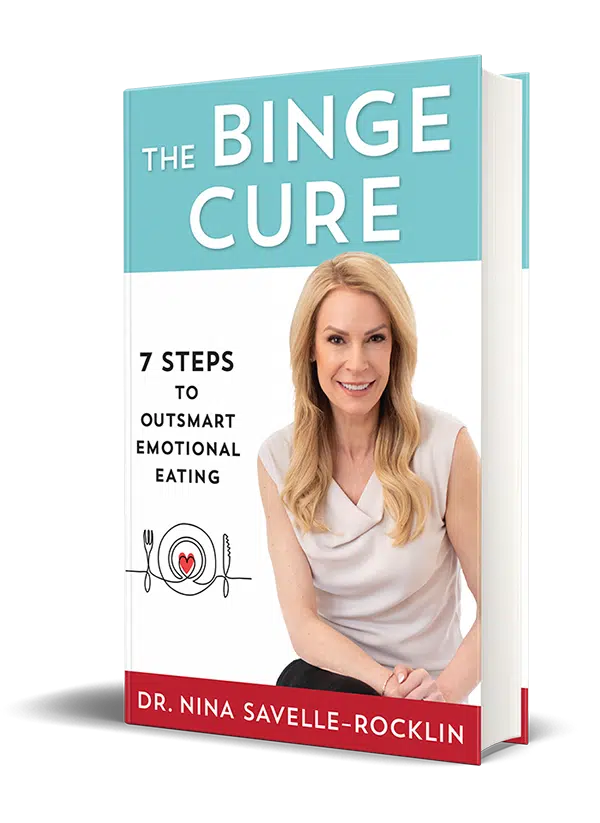
The Author
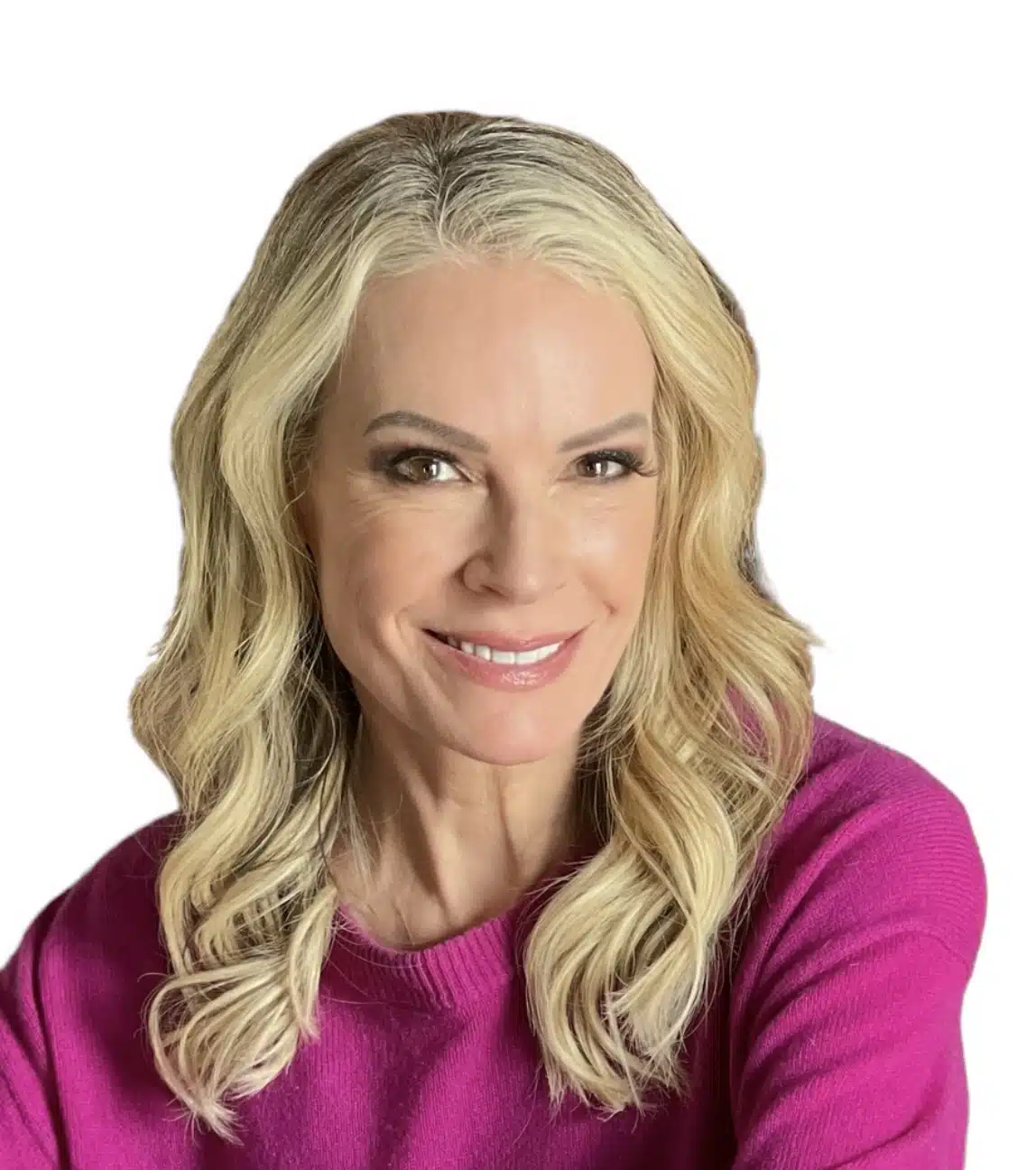
Dr. Nina Savelle-Rocklin is a renowned author and podcast host and one of the nation’s leading psychoanalysts known for the psychology of eating. Her signature message of, “It’s not what you’re eating, it’s what’s eating ‘at’ you” has resonated with hundreds of thousands of listeners from around the globe in 40 countries. As founder of The Binge Cure Method, she guides emotional eaters to create lasting food freedom so they can take back control of their lives and feel good in their bodies.
Related Blogs



